This weekend, I spent more than eight hours in a theatre playing a video game about donkeys, reincarnation and organised labour with about 70 other people. Political, unpredictable and replete with ass puns, Asses.Masses is, on the one hand, a fairly rudimentary-looking video game made by Canadian artists Patrick Blenkarn and Milton Lim with a small team of collaborators. But the setting – in a theatre, surrounded by others, everybody shouting advice and opinions and working together on puzzles – transforms it into a piece of collective performance art.
Here’s how it works: on a plinth in front of a giant projected screen is a controller. In the seats: the audience. Whoever wants to get up and take control can do so, and they become the avatar of the crowd. The game opens with a series of questions, mostly about donkeys, some in different languages, and quickly it becomes obvious that you have to work together to get them right. Someone in our crowd spoke Spanish; another knew the answer to an engineering question; I knew, somehow, that a female donkey is called a jennet.
This is what makes the game a collective experience. Usually, no more than one person has their hands on the controller but, nonetheless, everyone is participating as you guide a group of donkeys on a long, surprising and increasingly surreal quest to get their jobs back from the farm machines that have made them redundant.
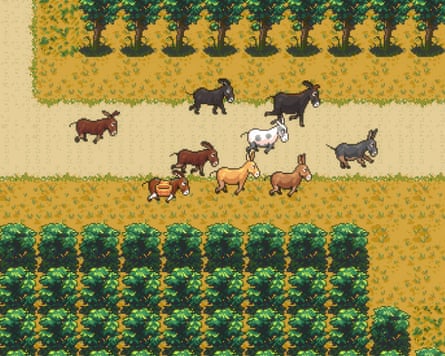
Over 10 chapters (with, thank God, food and frequent breaks), we took control of a whole cast of amusingly named asses, ruminated on collective action, industrialisation and labour politics, debated over what to say and what to do, and laughed a lot at the cheekier parts. Without spoiling it, the show’s content warnings give you a fair idea of what to expect: references to violence, strong language, simulated sex (donkey), simulated sex (human), police brutality as well as references to drug use and suicide. I was amused to discover that this Glasgow performance prompted a mini moral panic from a group called Parents Watch Education, which the Daily Record seized upon under the headline “Parents slam show aimed at teens featuring simulated donkey sex, murder and drugs”. (The show is advertised as 14+, and very much prioritises humour over realism.)
Asses.Masses is a thought-provoking game made worthwhile by its even more interesting means of play. It is also, and this must be said, a true endurance test. I had to duck out for a couple of hours in the middle to go and lie down for a bit; it has been many years since I have played any video game for eight straight hours. Thankfully, I brought a friend with more stamina, who filled me in on what I’d missed before I took up the controller for the final chapters. At one point, overwhelmed by the audience’s different opinions, I put the controller down, put my hands on my head, and silently empathised with every union or labour organiser who has ever had to corral and prioritise the ideas of an opinionated membership.
The game could have done more with the idea of herd mentality – I’m fairly sure that few of our group decisions actually amounted to anything and, really, what we were mostly doing was watching someone else play the game rather than actively participating. It was, in that sense, like a live Twitch stream. Theatre people tend to get very excited about anything that incorporates video game elements into performances, but I often wonder if that’s because they aren’t necessarily familiar with the mass participation and crowd dynamics that video games always inspire, whether through multiplayer, streaming, or just spirited online conversation.
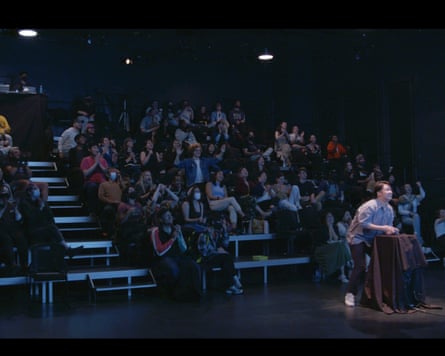
It made me want to invite friends round my house and pass the controller around all day like we used to in our early 20s. My friend was reminded of a video game book club she used to run, where six people would play through a game such as What Remains of Edith Finch together (and laugh at it, in that specific instance). Asses.Masses is specifically designed around collective play, but I can think of plenty more shortish, thought-provoking games that could be staged like this, and that would inspire an interesting reaction from audiences. And if the number of people who engage with Twitch is any indication, I think a lot of people would come.
Stumbling out of the theatre and into the rainy Glasgow night, I felt a real sense of camaraderie with the small crowd I’d been playing with. Often when I finish a game, I’m on my own in the living room in the middle of the night, while my family sleeps, and I have nobody to turn to to discuss it with. This time, I had a whole group of people to debrief with, and it reminded me that it is always the addition of human players that animates games with soul.
Assess.Masses is on a global tour till September 2026
What to play
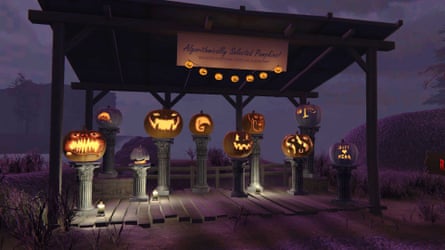
I have two spooky (but not too scary, because I’m a wuss) recommendations for Halloween week. Firstly: The Séance of Blake Manor, a folk-horror detective game that Keith absolutely loved, featuring an eccentric cast of characters gathering in a gothic hotel for a séance on All Hallows Eve. And secondly: Ghost Town Pumpkin Festival, an annual time-limited virtual Halloween party originally created as a lockdown replacement for real-life gatherings. Here, you create your own sheet-ghost with a drawn-on face, carve virtual pumpkins, and then head into a creepy little microworld to display them for other players. There is a surprising amount to explore, from hay rides to creepy movie theatres to a whole haunted house escape room. It’ll be live until a week or so after Halloween, and is available on itch.io on a pay-what-you-like basis.
Available on: PC
Estimated playtime: 15-20 hours (The Séance of Blake Manor), two hours (Ghost Town Pumpkin Festival)
after newsletter promotion
What to read
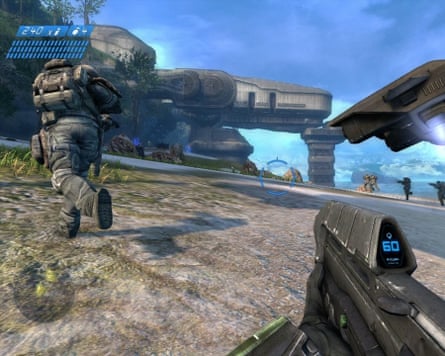
-
The biggest news from the past week is that Microsoft is releasing Halo on PlayStation, a sentence that would have been unthinkable even a few years ago. Specifically: a remake of the original (and best, don’t @ me) Halo: Combat Evolved will be releasing on all platforms next year, with Xbox’s execs peddling the line that console exclusives are now simply outdated. As former Blizzard boss Mike Ybarra put it: “Go tell Nintendo that.”
-
A report from Business Insider outlines how EA’s management has been asking its employees to use its in-house AI “for almost everything”, from coding to conversations about promotions. Several employees expressed concerns that they are essentially being paid to train their replacements, and generating even more work for themselves in the meantime in correcting AI’s mistakes.
-
Following crossovers with everything from KPop Demon Hunters to Daft Punk, the next big Fortnite collaboration has been announced: The Simpsons, featuring a whole Springfield map as well as character skins. It launches on Saturday.
What to click
-
‘A force of nature who took no prisoners’: a tribute to Ninja Gaiden creator Tomonobu Itagaki
-
Are digital board games as fun as the real thing? Turns out: absolutely not | Dominik Diamond
-
Baby Steps: I cannot stop playing this preposterous game about falling down a mountain
-
Outer Worlds 2 review (Weds AM)
Question Block
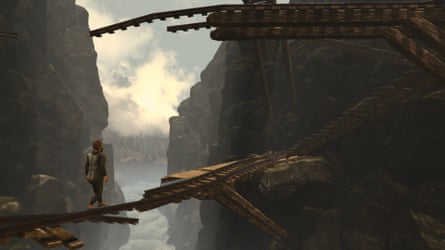
Reader Emily asks this week’s question:
“I read your article about the game Baby Steps and it sounded very similar to Getting Over It With Bennett Foddy. It is so exasperating because it is so difficult and you often end up falling back to the beginning and having to start all over again – but at the same time it is compelling. Which are the most deliberately difficult but compelling games to play?”
You’ve made an astute connection here, Emily, because Bennett Foddy is one of the three main developers (and voice actors) behind Baby Steps, and a natural extension of his game-design philosophy of making players howl with self-pity. (Here’s an interesting talk he gave about suffering and games.) Foddy’s oeuvre is a masterclass in this, and he makes the interesting observation that, since the 1990s, games have focused on removing suffering, making things smoother for the player. In doing so, they’ve taken away something that made them so interesting.
I play a lot of games that make me suffer, for reasons Foddy has helped me understand: the bigger the pain, the bigger the gain (and the less likely you are to be bored – my personal hell). The most memorable have been the aforementioned Baby Steps, everything in the Dark Souls/FromSoft canon (though not Sekiro, which annoyed the hell out of me), Cuphead, Super Meat Boy, Returnal and, of course, Hollow Knight: Silksong, which I will definitely finish soon.
If you’ve got a question for Question Block – or anything else to say about the newsletter – hit reply or email us on [email protected].

.png) 3 hours ago
5
3 hours ago
5

















































